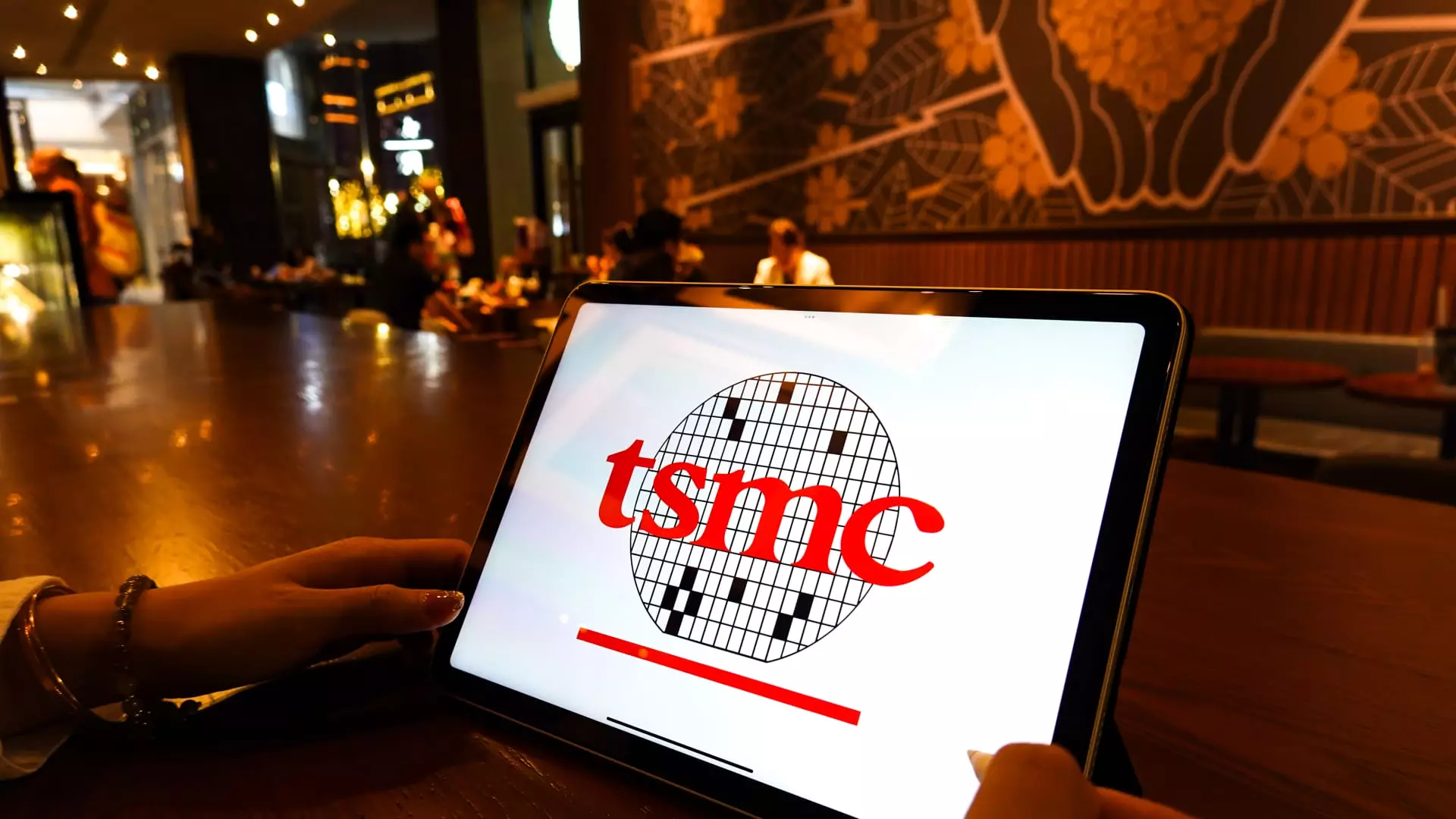In a notable financial disclosure, Taiwan Semiconductor Manufacturing Company (TSMC) has reported remarkable growth in its net profit, showcasing the company’s resilience amidst an evolving technological landscape. The third-quarter results reveal a staggering 54% increase in net income, driven primarily by heightened demand from artificial intelligence (AI) applications. This article delves into the implications of TSMC’s financial performance, market conditions, and strategic direction in the semiconductor industry.
For the July-September quarter, TSMC declared a net income of 325.3 billion Taiwanese dollars, equivalent to approximately $10.1 billion. This exceeded analyst forecasts, which estimated net income could reach only 300.2 billion Taiwanese dollars. TSMC’s stock reflected this positive performance, climbing 6.62% in premarket trading. The revenue recorded during this quarter stood at $23.5 billion, indicating a year-over-year growth of 36%. Furthermore, the company’s gross margin saw an increase, moving from 54.3% in the previous year to 57.8% this quarter.
The encouraging financial results affirm TSMC’s leading role in the semiconductor market, providing advanced chips to heavyweights like Apple and Nvidia. Such associations hint at the critical importance of TSMC’s technology in shaping future innovations.
TSMC’s Chief Financial Officer, Wendell Huang, provided insights into the company’s optimistic outlook for the upcoming quarter, projecting revenues between $26.1 billion and $26.9 billion. This anticipated growth signifies a sequential increase of 13% and a staggering 35% jump year-over-year at the midpoint of the forecast. The positive outlook derives from robust demand related to mobile devices and the burgeoning AI sector, particularly in TSMC’s state-of-the-art 3nm and 5nm chip technologies.
TSMC’s chairman and CEO, C.C. Wei, subsequently emphasized the authenticity of AI demand, highlighting that their growth trajectory is broader and deeper than others in the industry. He noted that conversations with their clients indicate a strong alignment with AI innovation, asserting that every major player in AI is now a TSMC client. This claimed depth of engagement with clients underscores TSMC’s critical position at the nexus of technological evolution.
On the capital expenditure front, TSMC revealed plans to elevate its investments to over $30 billion for this fiscal year, a clear signal of its commitment to expanding manufacturing capabilities. In the third quarter alone, capex occurred at $6.4 billion, slightly up from the previous quarter. Such investments are pivotal, especially as TSMC strives to bolster its production capacity in response to soaring demand in the chip market.
The company’s international expansion strategies are noteworthy; TSMC is investing a colossal $65 billion in three chip plants across Arizona to cater to the United States’ growing chip requirements. Additionally, the establishment of a factory in Japan marks another significant step in TSMC’s efforts to increase its global manufacturing footprint.
Despite the optimistic projections from TSMC, broader market sentiments remain cautious. The semiconductor industry is currently experiencing a paradox, where strong short-term demand for AI applications coexists with skeptical outlooks on the longevity of the AI boom. Concurrent developments, including ASML’s disappointing sales forecast—a crucial supplier to TSMC—serve as reminders of the potential pitfalls that may lie ahead for semiconductor manufacturers.
Furthermore, experts like Young Liu from Foxconn have pointed out that while excitement about AI is palpable, there are still hurdles to overcome in the technology’s maturity and market integration. These sentiments accentuate the need for TSMC’s strategic agility as it navigates the complex interplay of growth, investment, and market realities.
TSMC’s quarterly earnings report illustrates the company’s exceptional growth, buoyed by strong demand for advanced semiconductor technologies driven by AI applications. However, the environment remains nuanced, characterized by both significant opportunities and potential challenges. As TSMC continues to invest aggressively in its expansion and leverage its market position, it will be crucial for the firm to balance growth aspirations with prudent assessments of market dynamics and long-term resilience. The semiconductor industry’s future unfolds with much promise, but maintaining adaptability in this rapidly evolving sector will be key for continued success.

